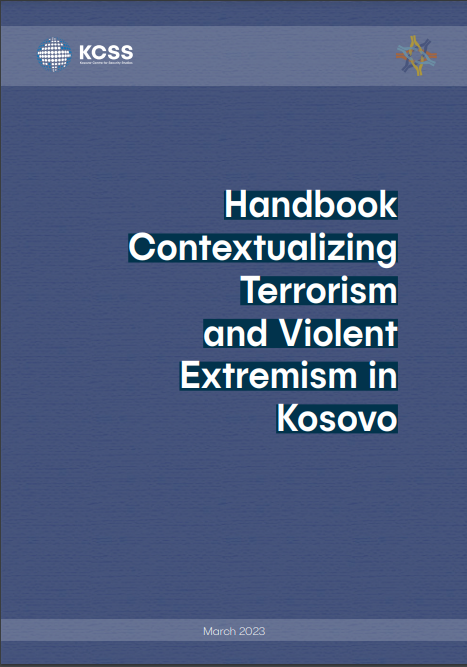9/03/2023

KCSS
Kingdom of the Netherlands and British Embassy in Prishtina
Skender Perteshi, Garentina Kraja
The following analysis is a summary of findings put together through a decade of research by the Kosovar Center for Security Studies and experts that have looked into radicalization in Kosovo through various programs aimed at identifying the drivers that pushed the country’s citizens to join terrorist organizations in the Middle East and to embrace extremist causes. This summary aims to contextualize the phenomenon of the so-called “foreign fighters” that joined the terrorist organization “The Islamic State” and other groups involved in the battlefields of Syria and Iraq, who represented a clear and present danger for Kosovo’s security institutions.1 Although every case is specific, the goal of this brief analysis is to offer an accurate framework on the individual and collective motives that drove a fraction of Kosovo’s citizens to join the terrorist organizations in the Middle East.
A discussion of the drivers is key to understand the context in which to situate the rehabilitation and the reintegration of Kosovo citizens that were repatriated from the conflict zones. In addition to its focus on the Islamist radicalization that leads to violent extremism, this short manual offers definitions and the typologies of violent extremism and radicalization that represent a challenge for Kosovo’s national security. Due to the lack of one single international practice that standardizes the rehabilitation and reintegration of radicalized individuals, the manual offers a summary of best practices for the needs of the Kosovo Probation Service staff. Lastly, the manual defines key terms and notions to facilitate the KPS and its personnel’s understanding and communication with the radicalized individuals under their supervision. These definitions of terms and norms will also aid the probation staff’s objectivity in dealing with the cases of radicalized individuals through the process of rehabilitation and reintegration. They will also assist in preventing stigmatization and unintended discrimination by the probation staff of those that have served prison sentences on terrorism convictions.